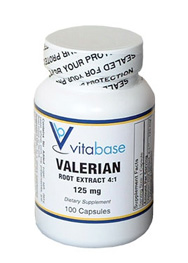There isn’t anyone who doesn’t experience an occasional sleepless night, perhaps due to heartburn, stress, indigestion, or drinking too much alcohol or caffeine.
The ideal amount of sleep varies from person to person. Although 8 hours of sleep is about average, there some do quite well on only four to five hours of sleep a night. An there are those need a good nine to 10 hours of sleep each night.
Insomnia is a prolonged inability to get enough adequate sleep. The results from insomnia are waking up in the middle of the night and having trouble getting back to sleep. People with insomnia may have difficulty falling asleep in the first place. It can be temporary, occasional, or a chronic problem.
Not being able to get a regular good night's sleep affects not only your energy level, but also your mood, your health and your immune system. Fatigue, caused by a lack of sleep, whether young or old, leads to diminished mental alertness and inability to concentrate.
Nutritional supplements that may be helpful for insomnia sufferers
Melatonin is a natural hormone that helps regulate the biological clock in humans. With progressing age, less melatonin in the body is produced. This may explain why older people have a harder time sleeping and why melatonin supplements help the elderly to sleep. Melatonin is a potent hormone and should be taken with doctor supervision, as long-term effects are unknown.
L-tryptophan, an amino acid, has been successful for some people with insomnia, as it is changed to the chemical messenger, serotonin. It has helped promote sleep in people who wake up three to six times per night. L-tryptophan is no longer an over-the-counter drug in the U.S. 5-Hyroxytryptophan (5-HTP) is a related compound, occurring naturally in the body. It is also changed into serotonin and may be helpful for insomnia. Rapid-eye-movement (REM) sleep was increased with 5-HTP; however, further research is necessary to decide if it is safe and helpful for insomnia sufferers.
Magnesium has been shown in a preliminary trial to improve sleep for those who suffered from insomnia and period limb movements during sleep (PLMS) or restless legs syndrome (RLS).
Vitamin B12 when taken by people with sleep-wake rhythm disorder (a form of insomnia) showed marked improvement after supplementing 1,500 to 3,000 mcg per day.
Herbs that may be helpful for insomnia sufferers
Valerian has been a leading herb used for insomnia. It makes getting to sleep easier and helps with deep sleep and dreaming. The combination of valerian and lemon balm has been tested for improving sleep in insomnia sufferers. It has been shown in a double-blind trial that this combination of herbs was effective in helping with the quality of sleep.
Other combinations with valerian root that act as mild sedatives are, chamomile, hops, passion flower, lemon balm, American skullcap, and catnip. These are all often recommended by healthcare professionals.
Bitter orange has been used as a calming agent for insomnia and may counteract insomnia.
Corydalis has been shown to provide pain relief and promote relaxation. In a preliminary report, people with insomnia fell asleep easier when corydalis extract was supplemented.
Many medicinal ingredients are found in the volatile oil of lavender. It is known to be calming when inhaled and can improve some cases of insomnia. Some uses of lavender can be harmful and should be used with supervision of a trained herbalist or medical professional
|

